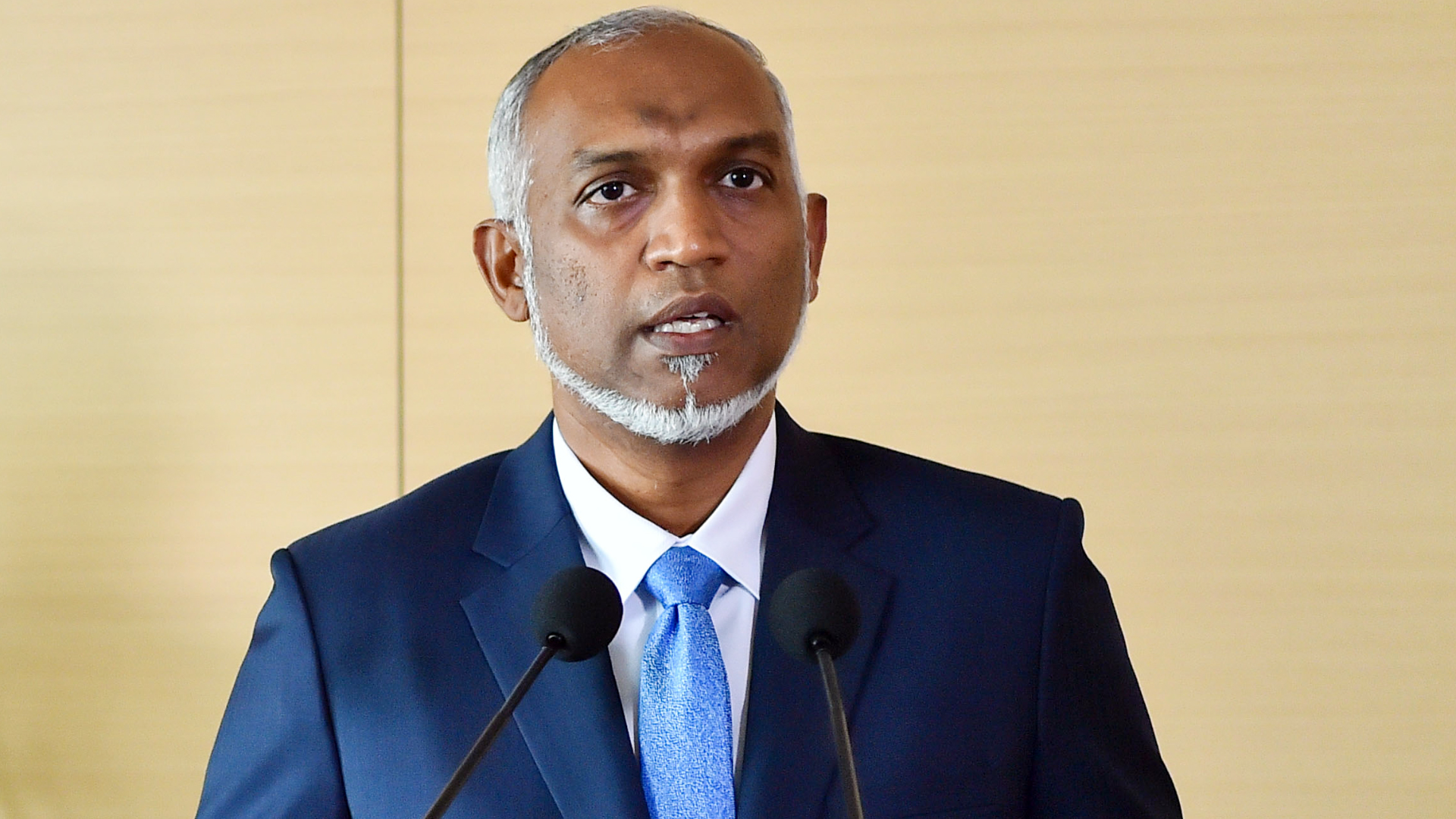Maldives President Mohamed Muizzu has accused his predecessor and opposition leader Ibrahim Mohamed Solih of taking orders from a foreign ambassador, as reported by the Maldives News Network (MNN), a registered news network operated by Maldives News Network PVT LTD in the country.
In an interview with Public Service Media (PSM), President Muizzu addressed criticism regarding the recent procurement of military drones. He highlighted that during the tenure of the main opposition, the Maldivian Democratic Party (MDP), from 2018 to 2023, there was a failure to safeguard the independence of the Maldives, despite having a supermajority in Parliament.
President Muizzu alleged that President Solih had acted under the influence of a foreign ambassador, leading to significant harm to the country, as reported by MNN. However, he refrained from specifying the foreign country involved.
“We had lost independence in all senses, including economically. After all this, they would naturally not accept our efforts to rectify the situation and steer the country toward the aspirations of the Maldivian people for a ‘Dhiveheenge Raajje’,” President Muizzu stated.
Regarding the cost of the military drones, President Muizzu emphasized his belief in transparency but noted that certain military matters are not disclosed by any country, as reported by the Maldives News Network.
“In matters crucial to national security, I rely heavily on advice from our chief of defense force and generals. Therefore, I will heed their advice and listen to them,” he added.
President Muizzu underscored the importance of Maldives’ independence, asserting that its value is immeasurable. He described it as “priceless,” emphasizing the significance of preserving the sovereignty and autonomy of the Maldives.
The allegations made by President Muizzu against his predecessor and the implications for the country’s independence underscore ongoing political tensions in the Maldives. The remarks also shed light on the government’s stance on national security matters and the imperative of safeguarding the country’s sovereignty.

















